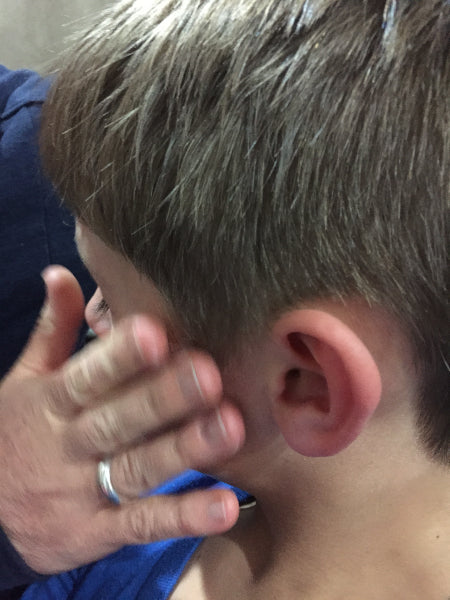
Top Tips for Back to School
Share
Preparing kids with eczema or allergies for the start of the school year.
Here's our 7 top tips to help get ready for the start of the school year:
1. Talk as a family about any worries, fears or concerns. These might be about how their skin looks different or how to avoid contact with certain foods at shared lunchtimes. It could also be about where and how to put any extra cream on throughout the day.
2. Talk to your kids teacher and/or principal or primary early childhood worker. Make sure they are aware of any food allergies and likely reactions. We found it best not to assume anything! Some teachers had experience with food allergies and skin conditions and were very knowledgeable but others didn’t. You might need to be explicit (we’ve had to make people aware that a dairy allergy was wider than just cows milk – it included yoghurt and cheese and that an egg allergy extends to egg in baking, glazes and mayonnaise). We even experienced a situation where one of our children was encouraged to try a range of ‘milks’ including almond milk despite knowing they had a nut allergy! Fortunately, they were old enough to point out that wouldn’t be a good idea. Make sure your children's teachers know what to do if there is a reaction or exposure to a known allergen.
It's important to explain and share whatever cream or medications your child is on as well - including how often you want any cream applied throughout the school day (you can even include a small tube of High Factor Peony Root Skin Remedy in their lunchbox to remind them to reapply the cream).
3. If your child has eczema or psoriasis make sure that the teachers know it isn’t contagious (and its not school sores!). Make sure they are confident about reassuring other parents or children if needed. Their teacher needs to be familiar with any cream or medications that need to be taken throughout the school day. Its also good to identify and talk through any triggers that can make their skin worse – eg sitting on the mat (carpet can make skin super itchy), getting too hot at playtime/lunch, swimming in the school pool…and come up with some strategies for your child and their teacher on how to respond. Remember school pools can be highly chlorinated and harsh on skin so applying extra cream before and after swimming can help protect and then soothe skin.
4. Prepare your child so they can handle any comments or questions. It’s great if your child’s friends can handle any questions or comments from other kids too. It can be hard but having some ideas on what to say (and even practiced them) can help reduce any anxiety. One of our kids used to worry about his legs being ‘scaly like a lizard’ and another that his hands were rough, like an old persons. We encouraged them just to answer truthfully and factually "oh, that’s just my eczema.”
5. Where possible choose clothing that is natural and breathes and will help keep their skin cool.
6. Make sure they have a full water bottle and remind them to drink plenty of water throughout the school day.
7. Check in at the end of the school day and end of the first week so if there are any issues you can work out how to respond to them as soon as possible.
